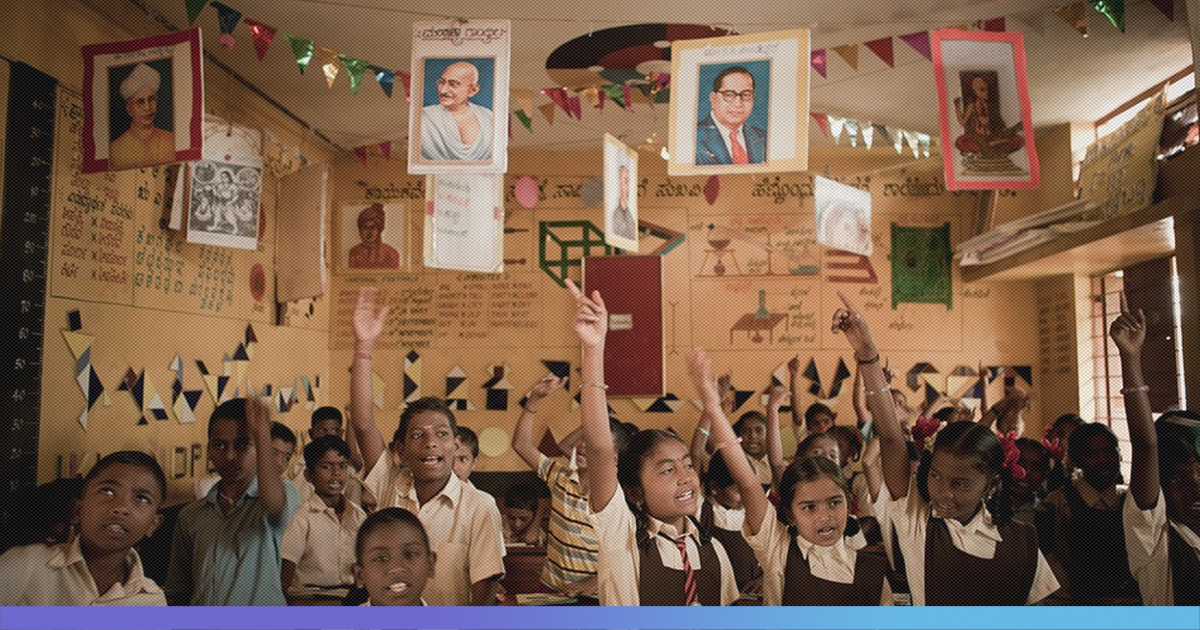Anti-Hindi protests have once again rocked non-Hindi speaking states. This after the central government proposed to make Hindi a mandatory language in its draft version of the National Education Policy (NEP) 2019. The draft policy submitted to the Central government on Friday said that the study of Hindi will be mandatory.
“In keeping with the principle of flexibility, students who wish to change one of the three languages they are studying may do so in Grade 6, so long as the study of three languages by students in the Hindi-speaking states would continue to include Hindi and English and one of the modern Indian languages from other parts of India, while the study of languages by students in the non-Hindi-speaking states would include the regional language, Hindi and English,” stated the draft submitted by Ministry of Human Resource Development (MHRD).
However, following the backlash, the government said that it was not done intentionally and released a new draft that removed Hindi as a mandatory language.
“Imposing Hindi was never the intention. The way the draft was being perceived was contrary to the spirit of the three-language formula. That’s why tweaks have been made. This is not a U-turn,” News18 quoted government sources as saying.
“In keeping with the principle of flexibility, students who wish to change one or more of the three languages they are studying may do so in grade 6 or 7, so long as they are able to still demonstrate proficiency in three languages (on language at the literature level) in their modular board examination sometime during secondary school,” read the new draft of the education policy.
The Backlash
Following the release of the initial draft, there was a huge backlash against the policy from the leaders across southern states, especially Tamil Nadu and Karnataka.
Opposing the policy, former Karnataka CM Siddaramaiah tweeted, “New National Education Policy draft imposes Hindi in non-Hindi states & this goes against our sentiments. If recognition of regional identity is inconsistent according to few then imposition of Hindi is nothing but a brutal assault on our States.”
New National Education Policy draft imposes Hindi in non Hindi states & this goes against our sentiments.
If recognition of regional identity is inconsistent according to few then imposition of Hindi is nothing but a brutal assault on our States.#StopHindiImposition
2/3— Siddaramaiah (@siddaramaiah) June 3, 2019
DMK chief and Leader of the Opposition MK Stalin too slammed the government.
“The DMK will strongly condemn and wage war against anyone who attempts the compulsory imposition of Hindi on Tamils, in whose blood there is passion for language.” He also said that all DMK MPs would raise the issue in Parliament.
மொழி உணர்வு கலந்த தமிழர்களின் ரத்தத்தில் “இந்தி” என்ற கட்டாயக் கலப்பிடத்தை யார் வலுக்கட்டாயமாகச் செலுத்த முயன்றாலும் அதை தி.மு.கழகம் கடுமையாக எதிர்த்துப் போர் தொடுக்கும்!
இதுகுறித்து கழக MP-க்கள் நாடாளுமன்றத்தில் தங்களது வலுவான எதிர்ப்பை தெரிவிப்பார்கள்!#StopHindiImposition pic.twitter.com/1lRjxHOqWu
— M.K.Stalin (@mkstalin) June 1, 2019
Call For A National Language
The new National Education Policy panel headed by Former Indian Space Research Organisation (ISRO) chief Krishnaswamy Kasturirangan recommended that students in non-Hindi speaking states learn Hindi and English along with one regional language.
The panel also stated that students in Hindi-speaking states learn Hindi, English and a modern Indian language from another part of the country.
Earlier in June 2017, vice president Venkaiah Naidu, stating that Hindi is a national language, said that Hindi as mother tongue is our identity and we should respect it.
In 1976, in Union of India v. Murasoli Maran, the Supreme Court noted that extending the time for the usage of English language does not amount to an abandonment of progress in the use of Hindi as the official language of the Union.
This significant observation, along with a national political scene that has been dominated for decades by politicians from Hindi-majority states, has meant that fear of the centre pushing Hindi to be made the national language has remained strong and relevant.
In the past, there have been several attempts by various central governments to make Hindi as a national language. However, every attempt to nationalise Hindi saw a massive protest from across non-Hindi states in southern parts of India, especially Tamil Nadu.
With 22 official languages associated with distinct cultures, some dating back to more than 4,000 years back, India has always reeled with the question of whether it should have a national language?
During the early debate on national language in the constituent assembly, it was decided that Hindi in its Devanagari script would be the official language along with English for a period of 15 years.
Thirteen years after the constitution came into being, the Official Languages Act was passed in 1963 with the support of the then Prime Minister Jawahar Lal Nehru. The Act stated that even past the fifteen-year deadline, “the English language may … continue to be used in addition to Hindi”.
However, after Nehru’s death in 1964, Lal Bahadur Shastri along with cabinet ministers Morarji Desai and Gulzarilal Nanda – who were strong supporters of making Hindi the sole official language – attempted to make Hindi a national language.
Lal Bahadur Shastri, then Prime Minister of India, attempted to make Hindi the national language in 1964. However, the government had to step back after non-Hindi-speaking states, particularly Tamil Nadu, protested against the decision.
Following the opposition, The Official Languages Act was amended in 1967 to cement a “virtual indefinite policy of bilingualism”.











